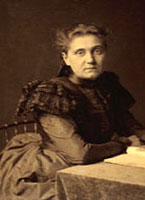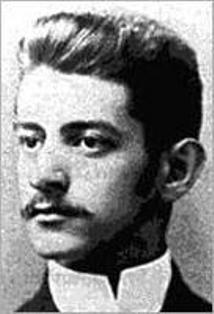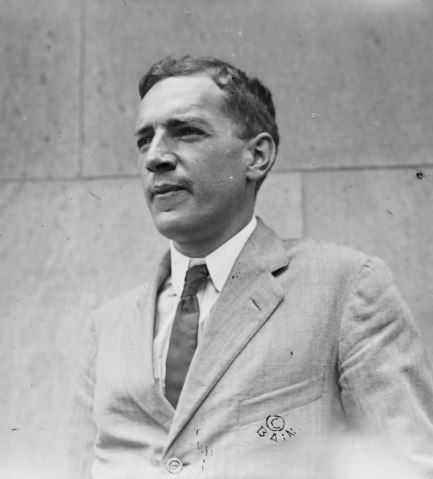
William A. Link
Born: August 18, 1954 in Evanston, Illinois
Pen Name: William Allen Link Connection to Illinois: Link was born in Evanston, Illinois. Biography: Link works at the University of Florida, in Gainsville, as the Richard J. Milbauer Professor of History.
Awards:
Website: http://williamalink.com
William A. Link on WorldCat : http://www.worldcat.org/search?q=william+a.+link
Selected Titles
| A hard country and a lonely place : ISBN: 9781469644127 OCLC: 1066248047 |
|
| Hard country and a lonely place : ISBN: 080786563X OCLC: 946167533 The University Of North C, [Place of publication not identified] : 2009. |
|
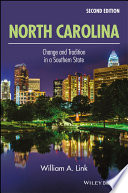 |
North Carolina : ISBN: 9781118833605 OCLC: 992438191 North Carolina (2nd edition) is a single volume, fascinating history of the state that covers political, economic, cultural and social dimensions of the Tar Heel state's past. This new edition includes new material and an updated history to the present day. The most up-to-date history of the state, encompassing events up until 2015. The new edition includes six sections of primary-source documents. Includes the very latest historical literature. Answers meaningful questions concerning the history and the future of this unique and quickly growing state--Provided by publisher. |
 |
North Carolina : ISBN: 0882952676 OCLC: 255014733 Harlan Davidson, Wheeling, Ill. : ©2009. |
 |
Righteous warrior : ISBN: 9780312356002 OCLC: 156832345 St. Martin's Press, New York : 2008. A portrait of a commanding American politician and of the conservative movement he forged. Early on, Helms realized the power of television, and across North Carolina in the 1960s, he battled the civil rights movement, campus radicalism, and the sexual revolution. Desegregation was a central issue in solidifying his base and mobilizing political support, but also important was his discomfort with what he believed was a rising tide of immorality. In 1973, he was elected to the Senate, where he remained until 2003. As Senator, Helms became a national conservative leader and spokesman for the revitalized American Right, playing a prominent role in the Reagan Revolution of the 1970s and 1980s and the rising tide of Republicanism of the 1990s. Historian William Link tells the story of one of the most powerful Americans of the twentieth century and the conservative mark he left on the American political landscape.--From publisher description. |
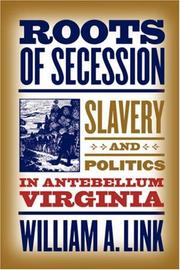 |
Roots of secession : ISBN: 0807856614 OCLC: 54358060 This text studies the role of slaves and free blacks in the politics of secession in antebellum Virginia. It places African Americans at the centre of events and argues that their acts of rebellion had powerful political repercussions throughout the period prior to the Civil War. |
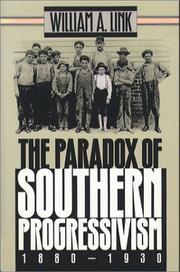 |
The paradox of Southern progressivism, 1880-1930 ISBN: 0807820407 OCLC: 45730700 University of North Carolina Press, Chapel Hill : ©1992. Focusing on the cultural conflicts between social reformers and southern communities, William Link presents an important reinterpretation of the origins and impact of progressivism in the South. He shows that a fundamental clash of values divided reformers and rural southerners, ultimately blocking the reforms. His book, based on extensive archival research, adds a new dimension to the study of American reform movements. The new group of social reformers that emerged near the end of the nineteenth century believed that the South, an underdeveloped and politically fragile region, was in the midst of a social crisis. They recognized the environmental causes of social problems and pushed for interventionist solutions. As a consensus grew about southern social problems in the early 1900s, reformers adopted new methods to win the support of reluctant or indifferent southerners. By the beginning of World War I, their public crusades on prohibition, health, schools, woman suffrage, and child labor had led to some new social policies and the beginnings of a bureaucratic structure. By the late 1920s, however social reform and southern progressivism remained largely frustrated. Link's analysis of the response of rural southern communities to reform efforts establishes a new social context for southern progressivism. He argues that the movement failed because a cultural chasm divided the reformers and the communities they sought to transform. Reformers were paternalistic. They believed that the new policies should properly be administered from above, and they were not hesitant to impose their own solutions. They also viewed different cultures and races as inferior. Rural southerners saw their communities and customs quite differently. For most, local control and personal liberty were watchwords. They had long deflected attempts of southern outsiders to control their affairs, and they opposed the paternalistic reforms of the Progressive Era with equal determination. Throughout the 1920s they made effective implementation of policy changes difficult if not impossible. In a small-scale war rural folk forced the reformers to confront the integrity of the communities they sought to change. |
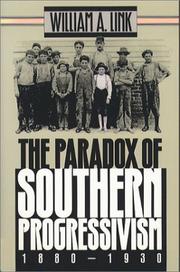 |
The paradox of Southern progressivism, 1880-1930 / ISBN: 0807845892 OCLC: 25282260 University of North Carolina Press, Chapel Hill : ©1992. Focusing on the cultural conflicts between social reformers and southern communities, William Link presents an important reinterpretation of the origins and impact of progressivism in the South. He shows that a fundamental clash of values divided reformers and rural southerners, ultimately blocking the reforms. His book, based on extensive archival research, adds a new dimension to the study of American reform movements. The new group of social reformers that emerged near the end of the nineteenth century believed that the South, an underdeveloped and politically fragile region, was in the midst of a social crisis. They recognized the environmental causes of social problems and pushed for interventionist solutions. As a consensus grew about southern social problems in the early 1900s, reformers adopted new methods to win the support of reluctant or indifferent southerners. By the beginning of World War I, their public crusades on prohibition, health, schools, woman suffrage, and child labor had led to some new social policies and the beginnings of a bureaucratic structure. By the late 1920s, however social reform and southern progressivism remained largely frustrated. Link's analysis of the response of rural southern communities to reform efforts establishes a new social context for southern progressivism. He argues that the movement failed because a cultural chasm divided the reformers and the communities they sought to transform. Reformers were paternalistic. They believed that the new policies should properly be administered from above, and they were not hesitant to impose their own solutions. They also viewed different cultures and races as inferior. Rural southerners saw their communities and customs quite differently. For most, local control and personal liberty were watchwords. They had long deflected attempts of southern outsiders to control their affairs, and they opposed the paternalistic reforms of the Progressive Era with equal determination. Throughout the 1920s they made effective implementation of policy changes difficult if not impossible. In a small-scale war rural folk forced the reformers to confront the integrity of the communities they sought to change. |
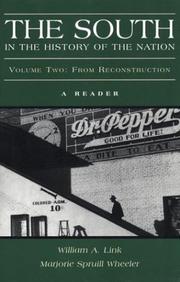 |
The South in the history of the nation : ISBN: 031213357X OCLC: 41516233 Bedford/St. Martin's, Boston : ©1999. |
| The twentieth century : ISBN: 0882958909 OCLC: 24793285 Harlan Davidson, Arlington Heights, Ill. : ©1992. |
|
 |
William Friday ISBN: 0807846805 OCLC: 230725637 The University of North Carolina Press 1995 |
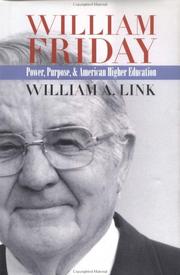 |
William Friday : ISBN: 0807821675 OCLC: 44961253 University of North Carolina Press, Chapel Hill, N.C. : ©1995. Few North Carolinians are as well known or as widely respected as William Friday. Although he has never run for elected office, the former president of the University of North Carolina has been prominent in public affairs for decades and ranks as one of the most important American university presidents of the post-World War II era. His service on the White House Task Force on Education and his work with the Carnegie Commission on the Future of American Education and the Knight Commission on Intercollegiate Athletics have made him an influential figure both inside and outside the Tar Heel state. In this comprehensive biography, William Link traces Friday's long and remarkable career. Based on interviews with Friday and written with complete access to his personal files, this book places the growth and development of higher education - both in the South and in the nation as a whole - within a broader social and political context.--Jacket. |


